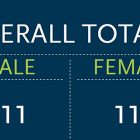The Lover’s Inventory by Cyril Wong
Cyril Wong’s latest book of poems, The Lover’s Inventory, begins with an epigraph by Emerson: “Poetry teaches the enormous force of a few words, and, in proportion to the inspiration, checks loquacity.” That this is the last book Wong may be publishing for a while is a pity but hopefully something that will prompt readers to turn back, in the light of this quote, to his existing body of work that deserves repeated readings.
His poems are among the most discussed in 21st-century Singapore poetry, and for a long time it didn’t seem that his publication would soon be checked. The experience of reading a Cyril Wong poem for me is that of picturing a scene with people and settings in clear physical relation to each other, their interactions, and most importantly, how they are framed and positioned by the speaker’s train of thought that is not always simple but always crystalline. When readers call his poetry “confessional,” it often seems uncertain whether they are placing such poems in the US literary tradition stemming from the ’50s, or simply rehashing their surprise at poems about personal and private experience as if they were a novelty in contemporary poetry. Is lyric poetry new to these readers? The cerebral challenge of reading his poetry seems to be forgotten once the label of confessionalism is tagged on, but we should attempt to take this rare offer up.
In “Cathedral,” the way the speaker imagines crashing through a window and down with his lover, souls hurtling upward, works with the tautness of the way the poem is a long sentence pulled across short lines. Read “Reservoir” for another lesson in the control of sentence against line: these poems have knowledge of technique and literary history but do not echo or deploy more of it than necessary in order to allow plain language to convey a clearly traced sequence of thoughts. Look again at “Strand” for instances of assonance and visual parallels: “third/party lover/hovers/along my inner thigh,” and a sinking revelation of the multiplicity involved in the speaker’s relationships: “just as I curl up tighter/against the body of another/long-term partner.”
This cynicism in his poems occasionally goes a little off track in a few endings when a button seems to have been pushed too hard. A little overstatement in bits can drive the force of a poem, but some more framing or pulling back from the point in time a scene is in could help some of the poems. The rhyme and meter in endings such as that of “SMS”: “Then my parting SMS/in a manner minus tact:/The chemicals have gone/to your brain. You’re crazy –/never message me again” work a little better when the poems conjure up conceits more closely, such as in “Shirt”: “As long as sex with you stays great,/I’ll let you yank it off of me in bed.” Think Donne’s To His Mistress Going to Bed and Marvell’s The Definition of Love; Wong is doing them a favor by bringing the craft behind their works into conversation with contemporary readers again.
More often I want to follow a path such as that in “Petals”: how the speaker conjectures that some lies might be “crucial” for “paring away false expectations of love”, and while fading away “like a bruise” or closing “like a fracture”, harden a bone upon its recovery. Then how the speaker contradicts himself by calling this conjecture “the lie I still tell myself” deliberately throws the poem’s premise in doubt. We don’t have the answers to dilemmas “already in us” from the start after all. Wong takes readers down a seemingly convincing argument, streaked with bitter hindsight, and shows them that time doesn’t necessarily bring about a new view on things but merely questions old ones.
The Lover’s Inventory (Math Paper Press, 60 pages, $16 SGD) is available at the Books Actually online store and ships worldwide.



